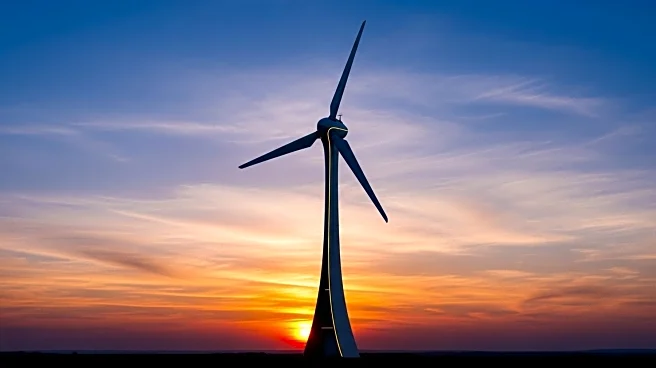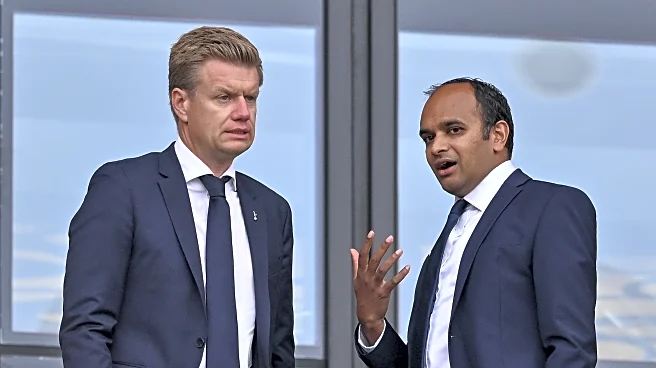What's Happening?
The Interior Department has implemented a new policy requiring all wind and solar projects on federal land to undergo an 'elevated review,' which necessitates personal sign-off from the secretary. This move is seen as a misuse of environmental laws originally designed to protect wildlife and public lands. The policy is part of a broader strategy by the administration to use existing environmental regulations to hinder renewable energy projects. Experts argue that this approach is effectively a de facto prohibition on the siting and permitting of renewables on federal public lands, focusing on metrics like capacity density to justify the restrictions.
Why It's Important?
This policy shift has significant implications for the renewable energy sector in the U.S. By imposing stringent review processes, the administration could create a backlog that delays or halts renewable projects, affecting the industry's growth and investment. This could undermine efforts to transition to cleaner energy sources and impact the U.S.'s ability to meet climate goals. The policy also highlights a political strategy to prioritize fossil fuels over renewables, potentially affecting jobs and economic opportunities in the renewable sector. Stakeholders in the renewable energy industry, including environmental groups and clean energy advocates, are likely to challenge these measures.
What's Next?
The renewable energy sector may face increased legal and regulatory challenges as it navigates these new requirements. Industry groups and environmental advocates are expected to push back against the policy, potentially leading to legal battles. The administration's approach could also prompt legislative responses aimed at protecting renewable energy development. As the policy unfolds, its impact on both public and private land projects will be closely monitored, with potential implications for future energy policy and environmental regulation.
Beyond the Headlines
The policy raises ethical and legal questions about the use of environmental laws to hinder rather than promote sustainable development. It also reflects broader cultural and political tensions around energy policy in the U.S., where debates over climate change and energy independence continue to polarize public opinion. The long-term effects of this policy could reshape the landscape of energy production and environmental protection in the country.










